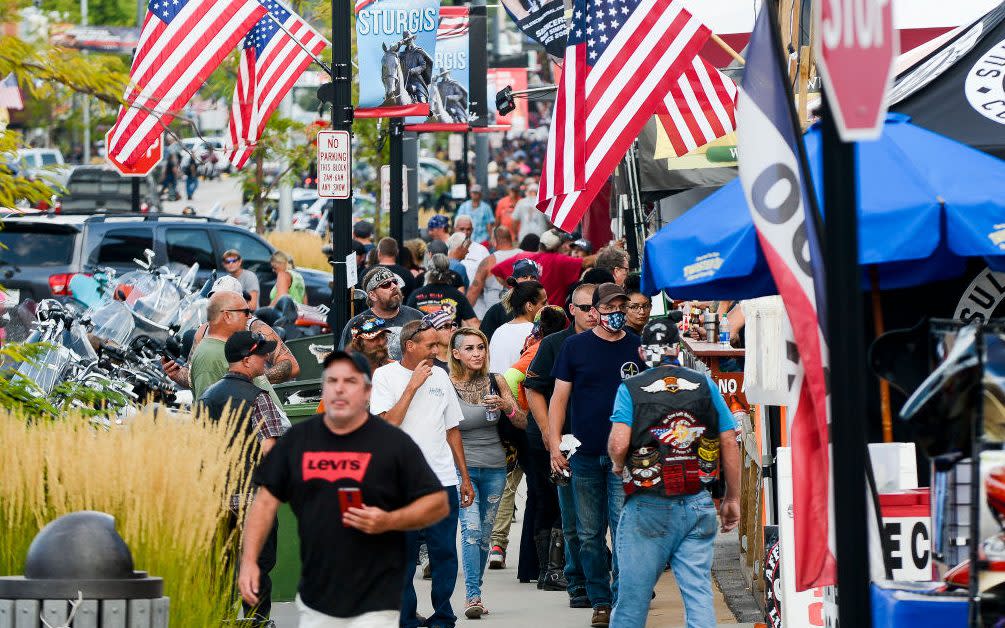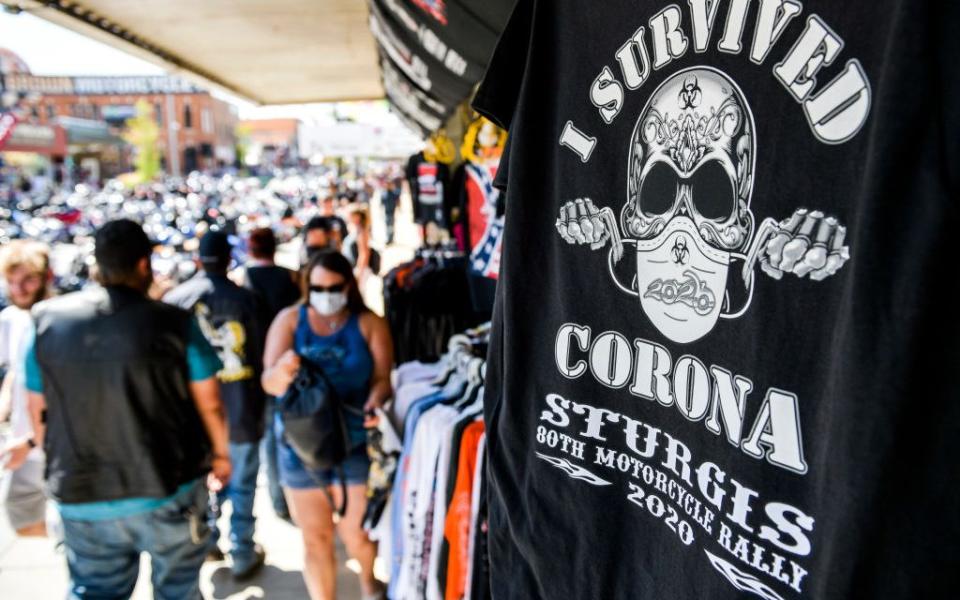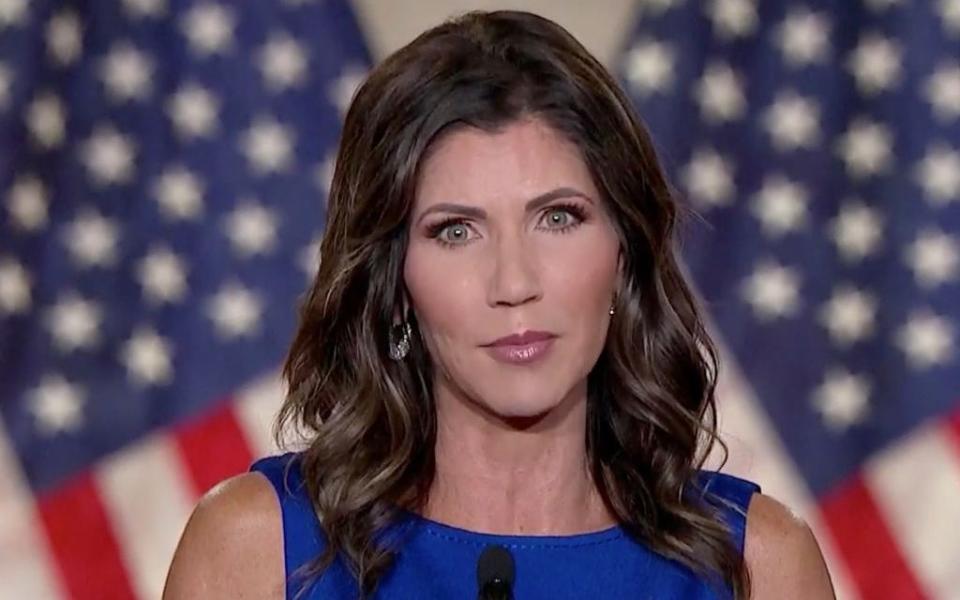'Most Republicans shun masks' – a postcard from South Dakota, America's lockdown-free outlier

There aren’t a lot of people in South Dakota, so it seems like there are connections between every small town and every family. It’s the US’ seventeenth largest state at 77,121 square miles, with a population around 900,000. That’s similar to the urban population of Liverpool spread across a massive area; not many residents for a large expanse, but in some ways, we’re like one community. Everyone seems to know someone who knows you.
With so few people in the state, the number of Covid-19 cases has caused pain in most households. We’ve had more than 94,000 people diagnosed with the virus, meaning more than 10 per cent of the state has had it. We all know someone who died and someone who lost their job.
The death toll continues to mount. As of mid-week, it was at 1,667, according to the South Dakota Department of Health. On December 21, Dr. Michael Elliot of Avera Health, along with Sanford Health, one of the two healthcare giants that dominate medical treatment in the state, said the pandemic was still rampaging across South Dakota, with 12.4 deaths per 100,000 people. “In the last seven days, South Dakota has had the highest daily reported death rates per 100,000 population of the United States,” Dr. Elliot said.
Healthcare experts have been imploring people to wear masks, wash their hands and practice social distancing. South Dakota is, incidentally, one of very few states without a mask mandate; along with North Dakota, Nebraska, Mississippi, Missouri, Georgia, South Carolina, Tennessee, Idaho, Oklahoma, Florida, Arizona and Alaska.
The role mask-wearing plays in controlling the spread of coronavirus remains up for debate. As 23,000 more Americans died from the coronavirus last week, setting a record for the third straight week, rates rose in eight states, compared to 40 the previous week, according to Reuters. The top five (Wyoming, Virginia, Maine, Washington and Connecticut) all have mask mandates. The three states with the most new cases (California with 277,058, Texas with 153,843 and New York with more than 106,980 new cases) also require masks in public.

While several cities in South Dakota have enacted largely toothless mask mandates, including Sioux Falls and Rapid City, the two largest communities in the state, there are still many people out and about who refuse to wear masks. One of them is the governor, Republican Kristi Noem. She has repeatedly been seen in public without a face-covering, and has pushed back against many of the precautions that experts have advised. Her grandmother, 98, tested positive for Covid and died late last year.
Noem, who campaigned across the country for former President Donald Trump as well as several congressional candidates, claims shutdowns don’t work. She has made Covid-19 a political issue in the state, with many of her supporters eschewing masks, while the state’s outnumbered Democrats are usually lined up on the opposing side.
“For those who have spent the last nine months shut down or locked up in other states, South Dakota is open,” Noem said in her January 12 State of the State address to the South Dakota Legislature. “We have stayed open the entire time. And that’s how we will operate for as long as I am governor.”
America's answer to Sweden – a postcard from the US state that refused to lock down
The Legislature is underway in Pierre; population 14,000, making it the country’s second-smallest state capital. Pierre — French explorers passed through in the 1700s — is the only capital not served by an interstate highway. Nor are its lawmakers served by masks. Most Republicans decline to wear them on the floor, in committee hearings or in the bars where much of the political work is done. The tiny group of Democrats mask up and raise their objections, but their voices are seldom heard.

I know a lot of people who have had Covid-19, including my younger brother Chad. Chad, 48, is autistic and has special needs. He lives in a group setting in Sioux Falls, and many of the residents and staff members were diagnosed with Covid late last year. Chad has recovered, and I was able to visit him last weekend for the first time in nearly a month. Still, I wore a mask and we had to forgo our usual hug goodbye.
We have spent much of the last year at home, luckily since I can do my work from there. We pick up our groceries in the parking lot of the store, wearing a mask as we hand a tip to the young men and women who perform that service. Like millions of people, we would prefer a more active life, but also like those people, we fear the plague. My younger sister Mary’s father-in-law, Maynard Thompson of Brookings, died of Covid.
“I truly believe if it had not been for the virus Maynard would still be alive,” Mary told me. “I also truly believe the nursing home he was at did everything they could to keep people safe from the virus. They closed their facility to visitations from outside visitors a week before the whole state shut down.”
She feels while the coronavirus was the cause of death, there was another factor. “I think in some ways (he did test positive 15 days before he died) his passing was more due to not having any contact with anyone except his direct care staff (and that was minimal because they were doing meals in his room),” Mary said. “His death may be more due to loneliness. Giving up because life he was so lonely and unsatisfied.”
Cindy Davis of Rapid City said three of her aunts and two uncles had the coronavirus as well as “a pack of cousins.” Davis, who celebrated her 60th birthday in quarantine, works for the South Dakota School of Mines & Technology, a state university in Rapid City. “We’ve been hunkered down at home since March to protect my 82-year old-mom, and the rest of the household of course,” she said. “We've been lucky enough to work from home. It really has been a mess.”
In typical South Dakota style, Davis chooses to see the upsides. “With all of that we've been more fortunate than many. We are still working, so haven't fallen into homelessness, or hunger. We still have our medical insurance,” she said. “My heart breaks for our neighbors who haven’t got the work from home option or who are dealing with school-age kids. And don’t even get me started on the whole political horror show.”
That’s something she can discuss with her family, friends and neighbors, hopefully in person someday this year.

